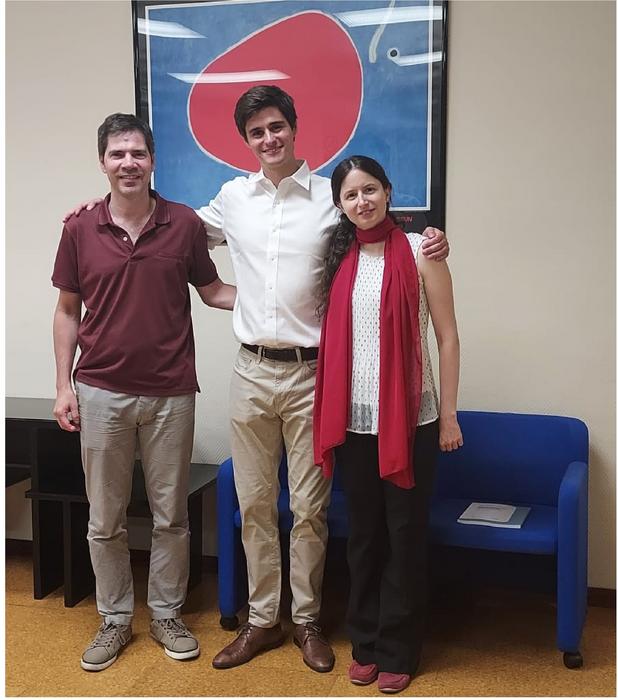In a groundbreaking study spearheaded by scientists at the Centro Nacional de Investigaciones Cardiovasculares Carlos III (CNIC) in Madrid, Spain, a novel immunotherapeutic approach employing a specialized subtype of dendritic cells has demonstrated remarkable efficacy in curbing cancer recurrence in experimental mouse models. This promising advancement, arising from a collaborative effort with the Instituto de Investigación Biomédica de Barcelona (IRB Barcelona), offers new avenues for combating tumor relapse by harnessing the immune system’s capacity to generate durable protective memory against malignancies.
Central to this breakthrough is the role of conventional type I dendritic cells (cDC1s), a subset of antigen-presenting cells known for their potent ability to orchestrate adaptive immune responses. Unlike broad immunotherapeutic strategies that primarily amplify existing immune activity, this approach purposefully initiates a novel, tumor-specific immune response. By extracting dendritic cells from tumor-bearing mice, loading them ex vivo with tumor-derived antigens, and subsequently reintroducing them into the same host, researchers have uniquely managed to activate cytotoxic T lymphocytes capable of targeting primary tumors and thwarting future relapses.
Dendritic cells serve as sentinels within the immune system, able to capture, process, and present tumor-associated antigens to naive T cells, thereby igniting a cascade of immune activation. However, dendritic cells comprise a heterogeneous population, and prior to this study, the precise subset best suited to evoke long-lasting anti-cancer immunity remained elusive. The CNIC-led research conclusively identifies cDC1s as the optimal subset for generating a strong and durable immune memory response crucial to sustained tumor control.
Ignacio Heras-Murillo, the study’s first author and a researcher at CNIC, emphasizes the significance of this work by highlighting its departure from conventional immunotherapies. Whereas current treatments often act by enhancing pre-existing immune responses, this novel strategy “induces a new, highly specific immune response against the tumor,” addressing one of the major hurdles in oncology: preventing tumor relapse after initial remission.
The innovative treatment protocol involves isolating type I dendritic cells directly from mice afflicted with cancer. These cells are then pulsed in vitro with tumor antigens, a process that effectively “educates” the dendritic cells to recognize malignant cell markers. Upon reinjection into the host, these cells engage and activate T lymphocytes, which target tumor cells with precision. Notably, this results not only in immediate tumor regression but also in the establishment of immunological memory capable of intercepting any subsequent tumor growth.
Stefanie Wculek, co-supervisor of the study and currently at IRB Barcelona, elaborates on the clinical implications of these findings. The dual effect of the therapy — combining rapid tumor elimination with long-lasting immune vigilance — offers an encouraging framework for designing next-generation cancer immunotherapies capable of durable remission, a goal that has remained challenging for decades.
The study’s principal investigator, CNIC scientist David Sancho, underscores the ability of the cDC1-based immunotherapy to prevent tumor relapse by inducing immune memory. According to Sancho, this memory response effectively “prevents the growth of a second, similar tumor” in the mouse models, highlighting the potential to avert metastatic progression and improve overall survival outcomes.
While these preclinical findings mark a significant milestone, the researchers acknowledge that additional studies are required to translate the approach from mouse models to human patients. Key questions include the therapy’s effectiveness against metastatic disease, compatibility with existing treatments such as immune checkpoint inhibitors, and scalability for clinical use.
This research was conducted with generous support from numerous institutions, including the CNIC, Spain’s Ministerio de Ciencia, Innovación y Universidades, the Agencia Estatal de Investigación, the European Union’s NextGenerationEU/PRTR initiative, the Comunidad de Madrid, the “la Caixa” Foundation, the Fundación Científica de la Asociación Española Contra el Cáncer, and Worldwide Cancer Research.
The CNIC itself is a leading cardiovascular research center affiliated with the Carlos III Health Institute and funded through public-private partnerships. Directed by Dr. Valentín Fuster, the center is renowned for its dedication to translating scientific discoveries into practical medical solutions and has been recognized by the Spanish government as a Severo Ochoa Center of Excellence.
Published in the journal Nature Communications, this cutting-edge investigation represents a paradigm shift in cancer immunotherapy by leveraging the unique properties of conventional type I dendritic cells. The ability to induce a specific, lasting immune response that actively prevents tumor relapse opens the door to novel therapeutic regimes that may dramatically improve patient outcomes across diverse cancer types.
The precision of this dendritic cell-based strategy directly addresses the challenges of immune evasion and tumor recurrence, offering hope for durable remission where traditional therapies have often fallen short. As the understanding of dendritic cell biology deepens, the prospect of personalized immunotherapies tailored to the immune landscape of each patient becomes increasingly attainable.
Looking ahead, further exploration of combination regimens incorporating cDC1 immunotherapy with other modalities, such as chemotherapy, radiation, or immune checkpoint blockade, could yield synergistic effects and widen the scope of clinical applicability. This study lays the foundational knowledge essential for such translational efforts, marking an exciting step toward more effective and durable cancer treatments.
Ultimately, the successful harnessing of type I dendritic cells to induce immune memory represents a significant advancement in the quest for cancer therapies that not only extinguish primary tumors but also fundamentally alter the immune system’s capacity to protect against future malignancies. This work exemplifies the power of immunological innovation in defeating cancer and underscores the critical importance of continued investment in cutting-edge biomedical research.
—
Subject of Research: People
Article Title: Immunotherapy with conventional type-1 dendritic cells induces immune memory and limits tumor relapse
News Publication Date: 9-Apr-2025
Web References:
– CNIC: https://www.cnic.es/en
– IRB Barcelona: https://www.irbbarcelona.org/es
– Nature Communications: https://www.nature.com/ncomms/
– DOI: http://dx.doi.org/10.1038/s41467-025-58289-1
Image Credits: CNIC
Keywords: Gene targeting, Primary tumors, Dendritic cells, Cancer immunotherapy, Immunological memory, Research organizations




